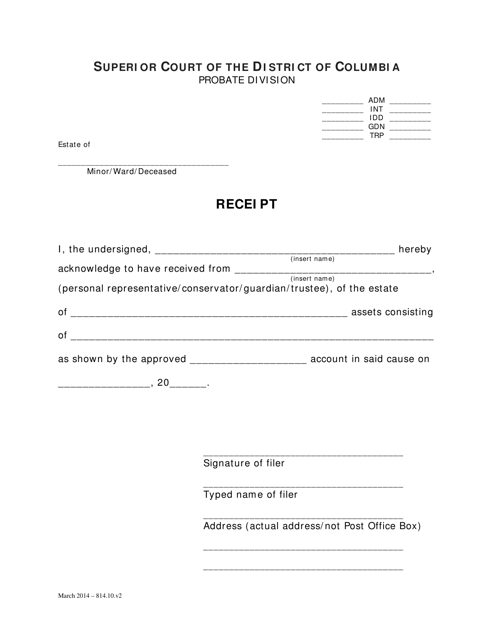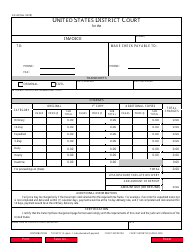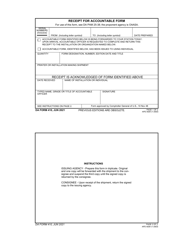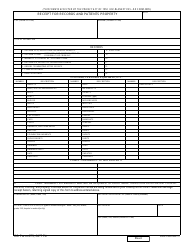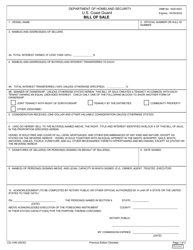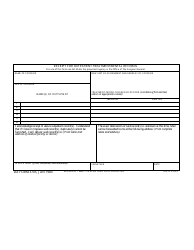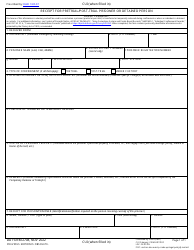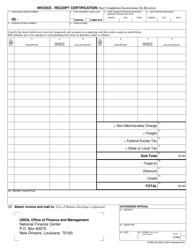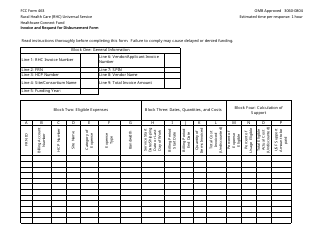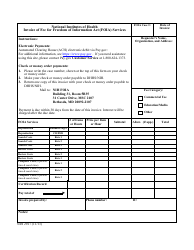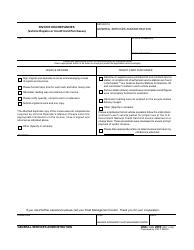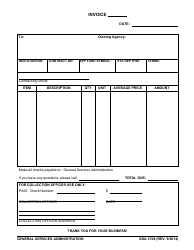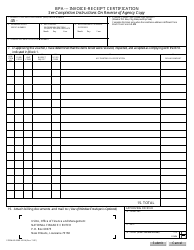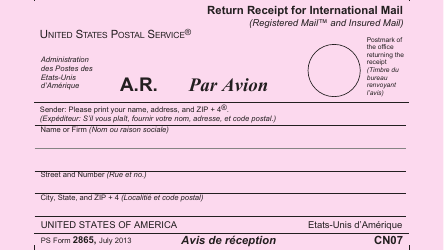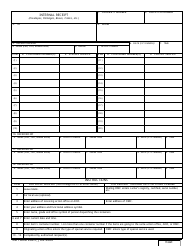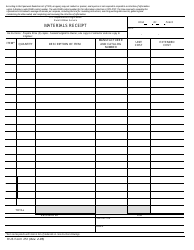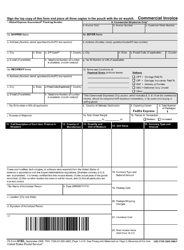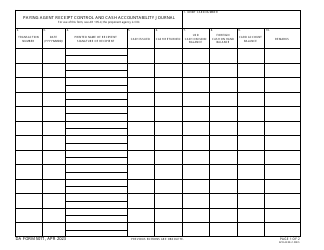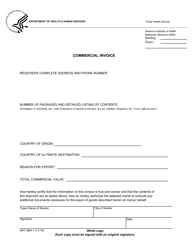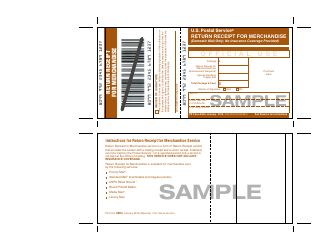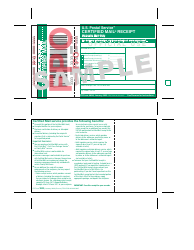Receipt - Washington, D.C.
Receipt is a legal document that was released by the District of Columbia Courts - a government authority operating within Washington, D.C..
FAQ
Q: What is a receipt?
A: A receipt is a written record of a transaction that shows the items purchased and the amount paid.
Q: Why is a receipt important?
A: A receipt serves as proof of purchase and can be used for returns, exchanges, or to claim warranties.
Q: How long should I keep a receipt?
A: It is recommended to keep receipts for at least a year in case you need them for returns, warranties, or tax purposes.
Q: Can I get a receipt for a cash transaction?
A: Yes, you should always ask for a receipt when making a cash payment to keep a record of the transaction.
Q: What information should be on a receipt?
A: A receipt should include the date of the transaction, the items purchased, the price of each item, the total amount paid, and the method of payment.
Q: Can I get a duplicate receipt?
A: In most cases, you can request a duplicate receipt from the seller or business if you have lost or misplaced the original receipt.
Q: Do I need a receipt for tax purposes?
A: Having a receipt can be beneficial for tax purposes, especially if you plan to deduct certain expenses. It is recommended to keep receipts for tax-related transactions.
Q: What should I do if I receive an incorrect receipt?
A: If you receive an incorrect receipt, you should contact the seller or business and provide them with the necessary information to correct the error.
Q: Is a digital receipt acceptable?
A: Yes, in many cases, digital receipts are considered acceptable as proof of purchase. However, it is always a good idea to check with the specific retailer or business for their policy.
Form Details:
- Released on March 1, 2014;
- The latest edition currently provided by the District of Columbia Courts;
- Ready to use and print;
- Easy to customize;
- Compatible with most PDF-viewing applications;
- Fill out the form in our online filing application.
Download a fillable version of the form by clicking the link below or browse more documents and templates provided by the District of Columbia Courts.
